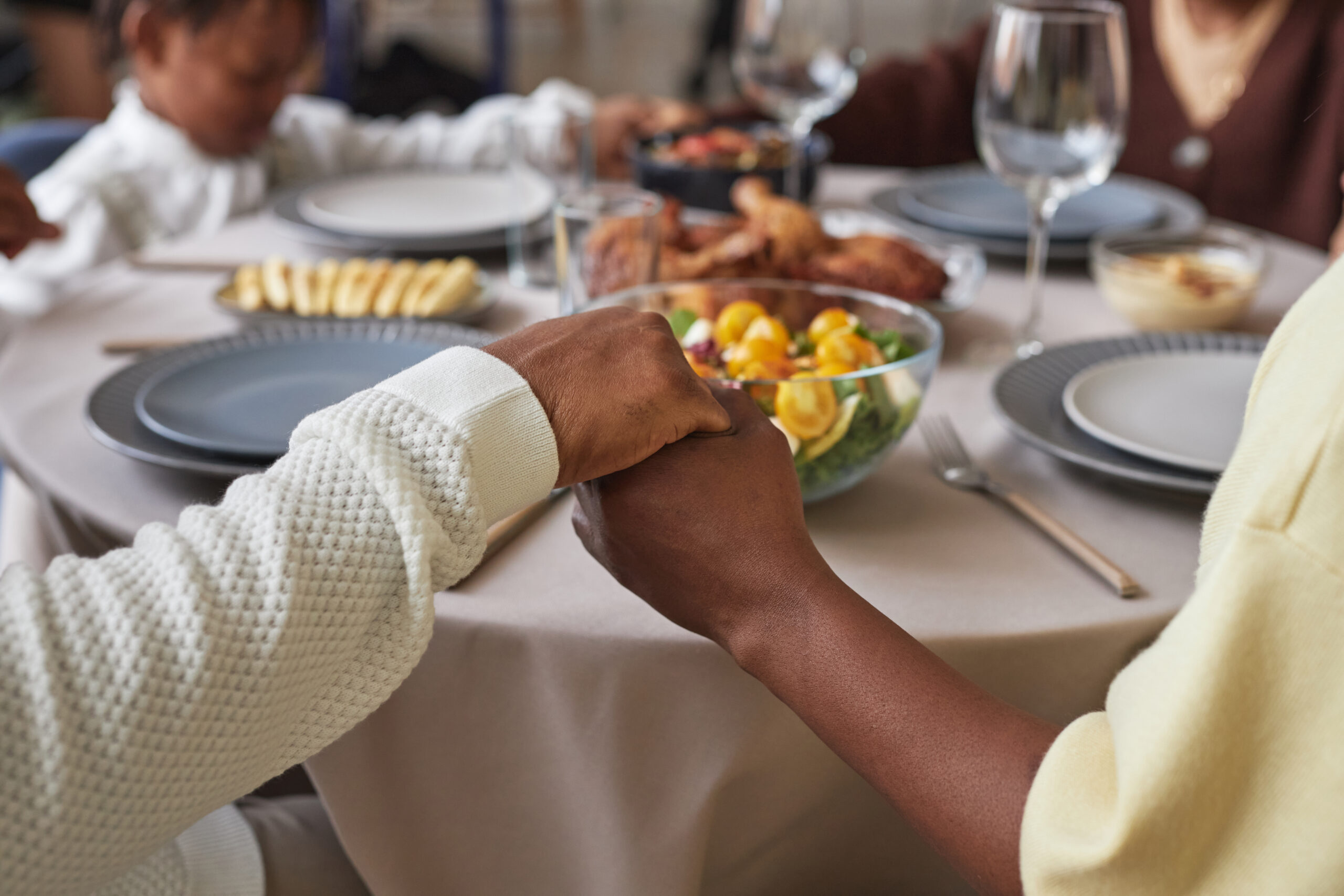Several years ago, I was talking with a local police officer at an event. He shared the various challenges and rewards of his work in our city. The experiences ranged from noise violations to arrests and apprehension of those breaking the law. I had young children, and his references to teenage antics that brought long-range consequences had me curious.
I asked him, “What did he notice that kept kids from engaging in risky behavior in their teen years?” His answer was surprising. He said the rhythm of regular family dinners was simple but profound in shaping kids. The students who experienced time around the table at home had long-term benefits and were well-adjusted.
I’ve never forgotten his wise advice. The familiarity of a meal with people who love you is stabilizing. Your senses are activated as you walk into a home—hearing, smelling, touching, tasting, and seeing. Memories are stamped through time at the dinner table.
In a simple statement, the wise police officer referenced the unseen and formational experiences of many kids. The experience of belonging, nourishment, and relational connection are just a few ways nurture goes beyond the food itself. Sharing stories, listening, and being listened to profoundly influence who we become. When we share communion, our churches testify of the grace and promise of Christ. Click To Tweet
The church experiences a different kind of meal. For an outsider, it doesn’t look like much—but it holds the very essence of our faith. Participation of believers in the Lord’s Supper is a mark of the church and has endured since Jesus first instituted it with his disciples (Matt. 26:26–28). Jesus held the bread and wine, symbols of his body and blood, and called us to partake in remembrance. Centuries later, the substance of his command holds promise and forms us to Christ.
Communion is expressed in the liturgy of churches differently. The timing, frequency, and way the Lord’s Supper is served are all freedom matters. What is consistent is the meaning behind the simple elements. Church planters and pastors, are you inviting people to partake and consider the depth of the communion table?
Spending time around the dinner table may be an ordinary rhythm, but it holds memory and shapes us for the better. The same is true for the Lord’s Supper. Consider the importance of our regular practice of communion through these three ideas.
Remember
Jesus’s command regarding communion is to “do this in remembrance of me.” Taking the elements as a regular practice invites us to recall the reality and necessity of Jesus’s sacrifice on the cross for our sins. It’s looking back to the past to (once again) revel in the present forgiveness we enjoy today. Christ’s covering of our sins abounds amid our stumbling flesh and failures.
We remember, confess, and receive the forgiveness only God can grant because of his Son. We remember not to be brought down but encouraged by God’s love and his present faithfulness. For the church planter, pastor, and ministry leader, it’s important to link God’s goodness with our repentance. We can do this through regular remembrance in communion.
Nourish
As we eat the bread and drink the cup, we’re recognizing Jesus is the bread of life (John 6:35). These symbols of his body and blood teach us that fullness comes from Jesus alone. In him, we don’t hunger or thirst but find complete satisfaction and rest. The communion meal reminds us that “Christ is the only food of our soul” (John Calvin).Spending time around the dinner table may be an ordinary rhythm, but it holds memory and shapes us for the better. The same is true for the Lord’s Supper. Click To Tweet
This embodied act recalibrates us to our trustworthy source and asks us to surrender all other competing comforts. In our surrender, we receive. The elements don’t provide physical nourishment, but they point us to Jesus—and he’s all we need for fulfillment.
Proclaim
Taking the elements is a corporate event meant for the family of God. It’s a unifying act that brings all believers to a moment of declaring the gospel together. For this same reason, it’s important to humbly guard the table. Those who don’t yet see Christ as their only hope are meant to reflect and consider but not come, as they would declare something untrue. We take these words seriously: “As often as you eat and drink, you proclaim the Lord’s death until he comes” (1 Cor. 11:26).
Our testimony empowers us to remember that whatever life has before us, the story isn’t over. He’s coming again, and all who believe are welcome. It’s important for pastors and leaders to graciously notice those who do not come to the communion table. When approaching those who have abstained with love and humility, you care well for the people God entrusted you to shepherd.
There’s more to a meal than meets the eye. Each time we participate in the Lord’s Supper, we have the opportunity to reflect with humble hearts. When we share communion, our churches testify of the grace and promise of Christ. All praise to Christ for the mystery and provision found at his table. May we take it seriously and not miss what God is doing among our brothers and sisters are we partake in this sacred meal.










